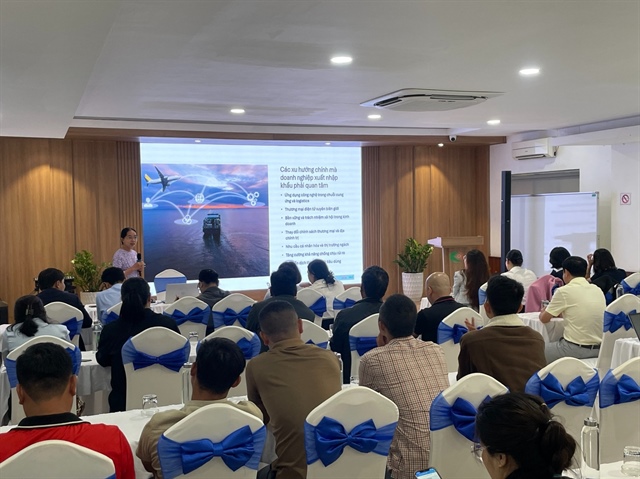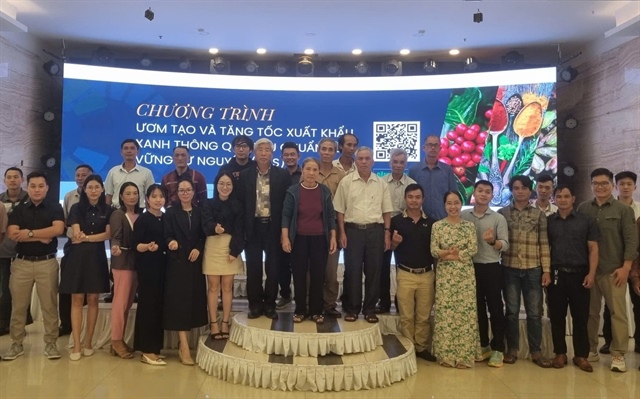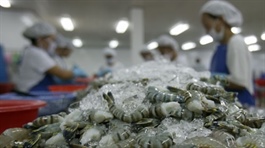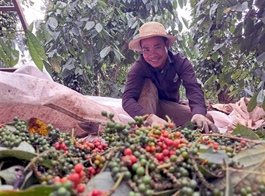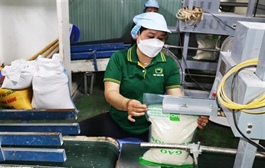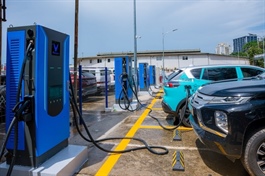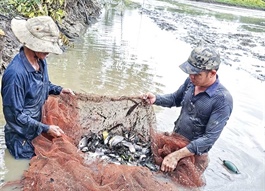Vietnam’s coffee heartland embraces green standards for global reach
Vietnam’s coffee heartland embraces green standards for global reach
As the global marketplace tightens its environmental and social standards, Vietnam's agricultural sector – particularly the Central Highlands, home to the nation's iconic coffee – stands at a critical crossroads.
To sustain growth and secure international trust, producers must now turn sustainability into a core business strategy rather than a branding slogan.
This urgency was clearly felt in late September, when two Green Export Vietnam (GEVA) training programmes took place in Daklak and Gia Lai, gathering nearly 70 businesses, cooperatives, and farmers active in the coffee and nut value chains. The sessions, operated by KisStartup, helped decode the complexity of Voluntary Sustainability Standards (VSS) and offered practical guidance on aligning local production with international market demands.
|
Global importers such as the EU, the United States, and Japan deploy strict regulations on environmental protection, traceability, and corporate responsibility. For Vietnam – one of the world's leading coffee exporters – meeting these evolving standards is not optional.
The Central Highlands, which produces over 90 per cent of Vietnam's coffee, remains a strategic economic zone and cultural symbol of the country's agricultural prowess. Yet, most of its coffee exports are still unprocessed, resulting in limited added value. The transition towards green and traceable production has become essential for the region's long-term competitiveness.
|
Nguyen Dang Tuan Minh, CEO of KisStartup, explained that VSS are rapidly reshaping how agricultural exports are evaluated worldwide.
“Although called 'voluntary', these standards are increasingly a passport for market entry,” she said. “Businesses that embrace them early can differentiate themselves, tell authentic sustainability stories, and build stronger international partnerships.”
Research on tropical commodities shows that every one per cent increase in VSS adoption can raise export value by 1.8-3.3 per cent. For Vietnamese producers, this underscores how compliance drives both credibility and commercial success.
Turning challenges into opportunities
The training sessions also provided farmers and entrepreneurs with tools to navigate these new expectations. Bui Khanh Tung, deputy director of the Centre for Organic Agriculture Development Support under the Vietnam Organic Agriculture Association, emphasised that sustainability standards should be seen as an opportunity rather than an obstacle.
“Pursuing quality and sustainability is a strategic decision that enables enterprises to build a solid foundation for export growth,” he said.
“By meeting standards such as 4C or Rainforest Alliance, coffee producers can secure higher prices while strengthening brand reputation in global markets.”
Tung and other experts also walked participants through practical applications of these standards, from soil management and biodiversity protection to worker welfare, linking theory with the realities of local farming in the Central Highlands.
From compliance to commitment
The open discussions between experts and businesses turned GEVA's workshops into more than just technical classes. They became a genuine forum for mindset transformation, where the concept of “green exports” was translated into everyday decisions.
|
Many participants expressed both concern and determination: how to grow coffee cleanly, manage costs, and still maintain profitability under the new sustainability demands. Green practices are not just about global market access, but about resilience, reputation, and long-term benefit for both the community and environment.
A pathway for future export champions
At the conclusion of the workshops, numerous participants signed up for GEVA's upcoming incubation and acceleration drive, which will provide deeper mentoring, one-on-one advisory, and international market connections.
Through these efforts, GEVA aims to equip Vietnamese enterprises with the capabilities to apply VSS, elevate export quality, and position themselves as credible players in the increasingly demanding global marketplace.
Vietnam's journey towards green exports reflects a broader national transformation, one that aligns economic ambition with environmental stewardship. For the Central Highlands, where every coffee bean carries both cultural heritage and livelihoods, this shift marks the beginning of a new era, an era where sustainability is not just a trend, but the defining ingredient for lasting success.
- 09:00 30/10/2025


